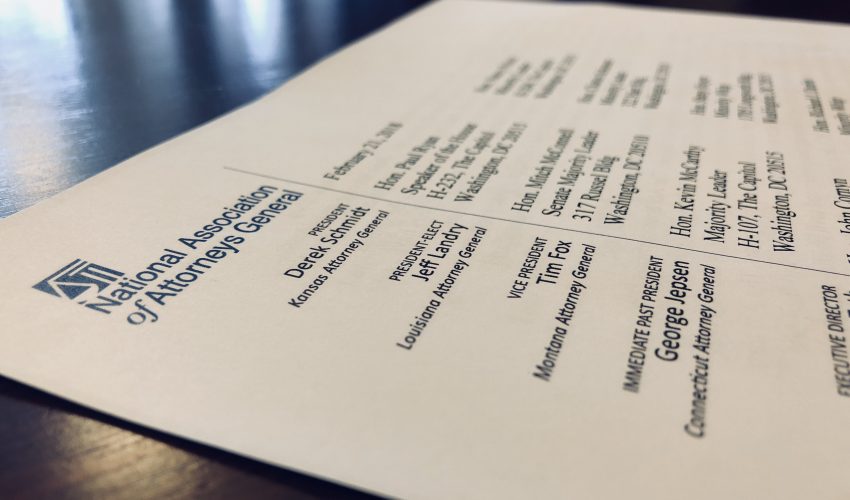Utah Attorney General Sean Reyes AND Vermont Attorney General T.J. Donovan Lead Bipartisan Coalition Urging Congress to Pass the CLOUD Act
36 Attorneys General Join Letter Calling on Congress to Pass Law
In a bipartisan letter sponsored by Utah Attorney General Sean Reyes and Vermont Attorney General T.J. Donovan, and signed by the attorneys general of 34 other States, the National Association of Attorneys General today urged Congress to pass the Clarify Lawful Overseas Use of Data (CLOUD) Act. The CLOUD Act would update and amend several provisions of the Stored Communications Act (SCA).
The CLOUD Act, as stated in the letter,
“confirms law enforcement’s ability to obtain probable-caused based warrants for electronic communications stored abroad and creates a clear avenue for service providers to challenge an SCA warrant that targets a foreign person and which would require a provider to violate foreign law. The Act also creates incentives for our foreign partners to enter into bilateral agreements that will facilitate cross-border criminal investigations while ensuring that privacy and civil liberties are respected.”
Under the SCA, a law enforcement agency may obtain a warrant to search an individual’s email or another online account if a reviewing court finds probable cause that the account contains evidence of a crime. Once issued, an SCA warrant is served on a service provider who must then collect the requested data and provide it to law enforcement. State and local law enforcement agencies routinely use SCA warrants to investigate all manner of local crime, from drug trafficking to murder and child sexual exploitation.
Recently, however, some service providers have argued that an SCA warrant cannot be enforced when the data being sought is stored on a foreign server, even if the provider and the customer who created the data are in the United States and that data can be accessed from the United States. The providers and others have argued that requiring compliance with an SCA warrant in this situation would be an extraterritorial application of a domestic law and would raise significant privacy and international comity concerns. This dispute has spawned litigation across the country, including the case of United States v. Microsoft, which is currently pending in the United States Supreme Court. The letter urges Congress to pass the CLOUD Act as “an important step toward resolving this dispute.”
The letter was joined by the attorneys general of Vermont, Utah, Alabama, Alaska, Colorado, Delaware, Florida, Hawaii, Idaho, Indiana, Iowa, Kentucky, Louisiana, Maine, Maryland, Massachusetts, Michigan, Minnesota, Mississippi, Nebraska, Nevada, New Jersey, New Mexico, New York, North Carolina, North Dakota, Oklahoma, Oregon, Pennsylvania, Rhode Island, South Carolina, South Dakota, Virginia, Washington, Wisconsin, and Wyoming.
# # #
NOTES:
- Find a PDF copy of the letter at https://attorneygeneral.utah.gov/wp-content/uploads/2018/02/Final-2.21-CLOUD-Act-Letter.pdf.
- AG Sean Reyes wrote an op-ed for The Hill about privacy in a digital era. Read it here: http://thehill.com/opinion/technology/364220-we-must-reconcile-privacy-and-safety-in-the-digital-era.

